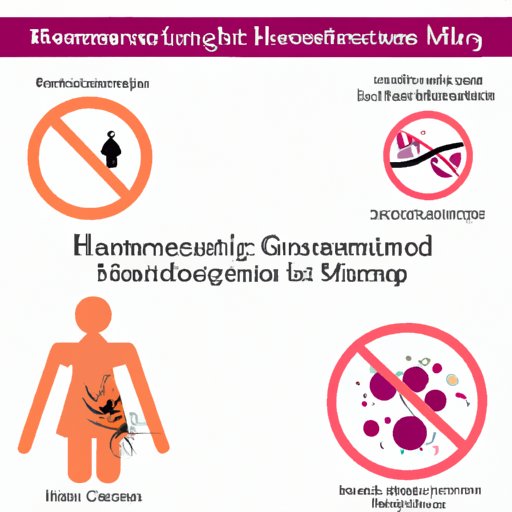
Introduction
Hashimoto’s Disease is an autoimmune disorder in which the immune system attacks the thyroid gland. This results in inflammation and eventual damage to the gland, leading to a range of symptoms related to thyroid dysfunction. It is one of the most common autoimmune diseases, affecting millions of people worldwide. The importance of understanding what causes Hashimoto’s Disease cannot be overstated as it helps in early detection, management, and prevention. This article aims to explore the various factors that contribute to Hashimoto’s Disease.
Understanding Hashimoto’s Disease: The Role of the Immune System in Thyroid Dysfunction
The thyroid gland is situated at the base of the neck and produces hormones that regulate metabolic function. The immune system plays a significant role in thyroid function by regulating the production of hormones. In Hashimoto’s Disease, the immune system produces antibodies that attack the thyroid gland, causing inflammation, and eventual damage to the gland. This leads to decreased hormone production, resulting in hypothyroidism, the hallmark of Hashimoto’s Disease.
Digging Deeper: The Potential Environmental Triggers of Hashimoto’s Disease
Environmental triggers play a significant role in the development of autoimmune diseases such as Hashimoto’s Disease. Exposure to environmental toxins, infections, and stress can trigger an autoimmune response, leading to the production of antibodies. Some environmental triggers of Hashimoto’s Disease include gluten, heavy metals, pesticides, and fluorides. Identifying these triggers and taking proactive steps to reduce exposure can help prevent Hashimoto’s Disease and other autoimmune disorders.
Connecting the Dots: The Genetic and Autoimmune Factors Behind Hashimoto’s Disease
Genetic factors also play a crucial role in the development of Hashimoto’s Disease. The AIM2, PTPN22, and CTLA4 genes have been linked to an increased risk of developing Hashimoto’s Disease. Additionally, autoimmune disorders tend to run in families, indicating a genetic susceptibility to autoimmunity. In combination with environmental triggers, these genetic factors contribute to the development of Hashimoto’s Disease. Early detection through genetic testing can help in the management and prevention of Hashimoto’s Disease.
Exploring the Link Between Emotional Stress and Hashimoto’s Disease
Emotional stress can trigger autoimmune flare-ups in people with Hashimoto’s Disease. The stress response activates the immune system, leading to an increased production of antibodies. Stress management techniques such as mindfulness, meditation, and exercise can help reduce stress levels and prevent autoimmune flares. It is important to address emotional stress as part of the management plan for Hashimoto’s Disease.
Hashimoto’s Disease: The Complex Interplay Between Diet, Lifestyle, and Hormonal Health
The thyroid gland is sensitive to nutritional imbalances and can be triggered or aggravated by certain foods. Gluten, dairy, and soy products have been linked to Hashimoto’s Disease due to their inflammatory properties. Lifestyle changes such as regular exercise, getting enough sleep, and avoiding environmental toxins can also help manage Hashimoto’s Disease symptoms. Hormonal imbalances such as estrogen dominance and adrenal fatigue are commonly associated with Hashimoto’s Disease and can be treated with hormone replacement therapy.
Conclusion
Understanding what causes Hashimoto’s Disease is crucial for better management and prevention. Genetic factors, environmental triggers, emotional stress, and lifestyle choices all play a crucial role in the development of Hashimoto’s Disease. By taking proactive steps to reduce exposure to environmental triggers, managing emotional stress, and adopting a healthy lifestyle, it is possible to prevent or manage Hashimoto’s Disease. Early detection through genetic testing can also help in the management and prevention of Hashimoto’s Disease.





